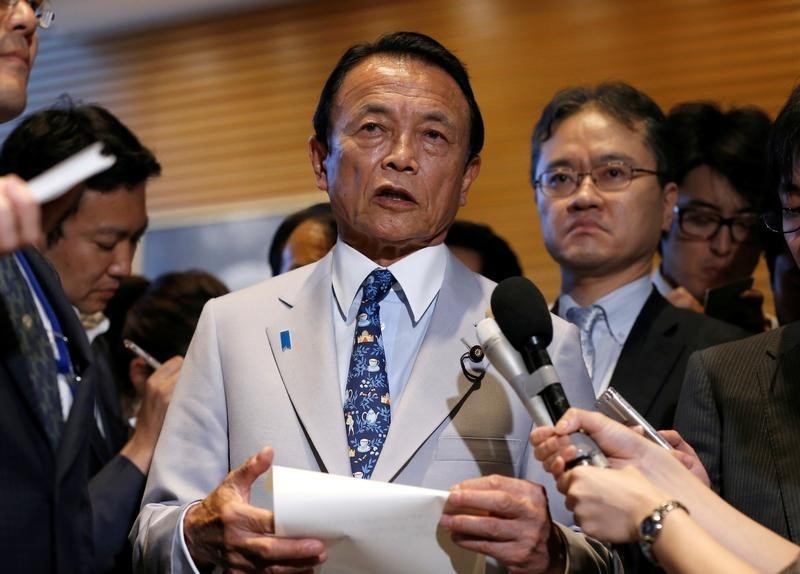By Takaya Yamaguchi and Linda Sieg
TOKYO (Reuters) – Japan is crafting a massive spending package worth about $190 billion to bolster the economy – about double the size initially floated – but a close examination shows actual public spending will be far less than the headline number suggests. Prime Minister Shinzo Abe, fresh off a big election win, last week ordered his government to create a stimulus plan to revive an economy dogged by sluggish consumption and investment, despite three years of his “Abenomics” mix of hyper-easy monetary policy, spending and promised reforms. The package will have a headline figure of at least 20 trillion yen ($186.55 billion), three government sources told Reuters on Thursday.
But despite the startling headline figure – equal to more than 4 percent of gross domestic product – real government spending to boost economic growth is actually in line with or smaller than previous expectations. “Overall, it seems like a paper tiger,” said Kentaro Sugiyama, senior economist at Nomura Securities.
About half of the nominal 20 trillion yen is expected to come from a combination of direct spending from both national and local governments and the Fiscal Investment and Loan Programme (FILP), about 3 trillion yen and 6 trillion yen, respectively. The other half, government sources say, is expected to come from private sector firms that get state subsidies and lending from quasi-government financial institutions.
The package could expand during talks with Abe’s ruling coalition before his cabinet approves the measures on Aug. 2.
“The fine print is always the same, about 2.5 trillion yen to 3.5 trillion yen of real fiscal thrust,” said Jesper Koll, CEO at fund manager WisdomTree Japan.
“The creativity with which this can be spun out to generate anywhere from 8-20 trillion is truly admirable,” he added.
FILP loans are financed by government bonds and must be paid back out of the recipient company’s profits.
Such loans are not included in budget numbers and technically don’t increase Japan’s debt, which is already more than twice the size of the economy,
“FRESH WATER”
LDP governments have a long tradition of inflating the headline figure of stimulus packages and there is even a word to describe the real spending component – “mamizu” or “fresh water”. “The 20 trillion yen headline figure is not very significant. What matters is how large the ‘mamizu’ portion will be,” said Hidenori Suezawa, fiscal and markets analyst at SMBC Nikko Securities. The government, which began laying the groundwork for the package as a rising yen threatened exports and worries about the global economy abounded, may have felt a need to inflate the headline figure because market expectations were high, said Hiroshi Shiraishi, a senior economist at BNP Paribas Securities. “There is still a chance it could increase a bit further, but the bottom line … is they are not going to issue deficit-financing bonds,” Shiraishi said.
“That basically means this will not increase significantly the amount of handouts to households.”
The spending is also likely to be spread over several years, reducing its immediate impact, while doubts persist over how much private investment will really rise given funds are already easy to obtain due to already rock-bottom interest rates. Whatever the source, much of the spending looks to be targeted at infrastructure projects, such as port improvements and speeding up construction of an ultra-fast “maglev” train line from Tokyo to Osaka. One LDP lawmaker said the package likely includes a FILP loan of 3 trillion yen over three years for the maglev project. That has some analysts wondering just how much it will contribute to long-term growth.
“What matters is whether there are policies to address the shrinking, ageing population and globalisation,” SMBC Nikko Securities’ Suezawa said.
“Without policies linked to the long-term growth of Japan’s economy, it could have little impact and just worsen public finances.”
(Additional reporting by Daiki Iga and Shinichi Saoshiro; Editing by Sam Holmes)
Japan’s $190 billion stimulus: ‘double your money’ but less than meets the eye

By Takaya Yamaguchi and Linda Sieg
















